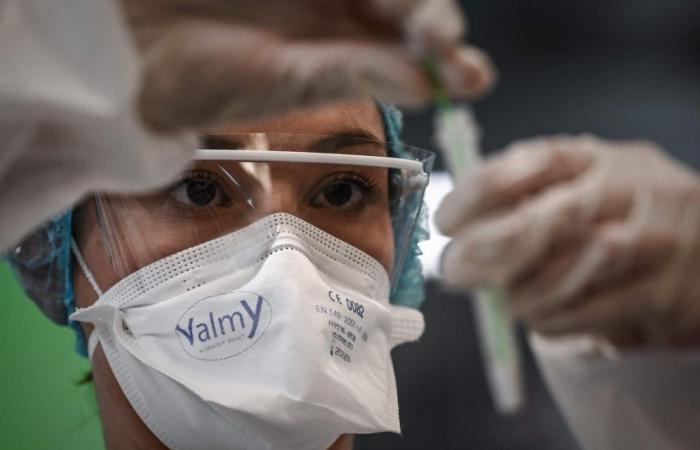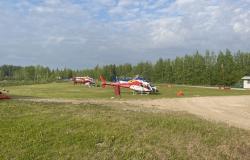Here we go again. We all know someone who has Covid. Surprising, right? While we believe he was indeed buried, he was sleeping. The nasty virus is added to the cohort of bad news, with, over the past two weeks or so, an increase in positive tests, fevers, bouts of fatigue or… nothing at all. Because this new variant, KP.2, which has just affected France, has this characteristic: it is very contagious, even more than its predecessors, but a little less biting. To the point that it can pass through us without us realizing it. Professor Denis Malvy, infectious disease specialist at Bordeaux University Hospital, however, holds regular meetings with his counterparts from around the world, to keep the bug at bay and anticipate the risks.
Professor Denis Malvy, infectious disease specialist, head of the tropical and traveler diseases unit at Bordeaux University Hospital, member of COVARS, observes the circulation of the latest variant of Covid 19
Thierry DAVID/SOUTH WEST
“This KP.2, also called Flirt, took the place of the XBB1 which was rampant just before,” he explains. It is still an Omicron, the latter variant with its two additional mutations on the Spike protein is even more transmissible, and above all, it is resistant not only to vaccines, but also to wild infections. Fortunately, it is not too bad, except for very old, very vulnerable people. Although it is less virulent, it is nevertheless incredibly transmissible in a population which has lost its immunity. Clearly, if you are vaccinated, you remain protected against serious forms – which is very important – but you can still contract it. If you have been infected, you can be infected again a few weeks later. »
Tip of the iceberg
The indicators are now less omnipresent, since the country is in the post-pandemic phase. But the figures available show a very marked increase in infections. “Indeed,” continues Professor Malvy, “we have noted an increase of 10% in positive tests at the hospital, and 20% in the city, over the last two weeks or so. This is the tip of the iceberg. In reality, not everyone gets tested, if we increased the number of tests in the city, the positive figures would be phenomenal. Many people are asymptomatic, or just a little woozy for a day or two. This silent circulation, since it is not visible in its full extent, is however of great intensity. We are not currently reporting any hospitalizations related to Covid. »
In “living with”
Professor Denis Malvy encourages the elderly to be vaccinated approximately every six months, but immunocompromised patients are also invited to do so. It invites the wearing of a mask in confined places, distancing measures in the event of social interaction, and regular cleaning of hands. “We are in the ‘living with’ situation,” he concedes. Despite the Olympic Games, we are not too worried about Covid. We will have to be extra vigilant in the fall, the end of recess may be called, because a new variant could emerge, even more transmitting, and why not more pathogenic. Laboratories work all summer to develop an updated vaccine. The one we have today does not protect against infections, but only against serious forms. »






